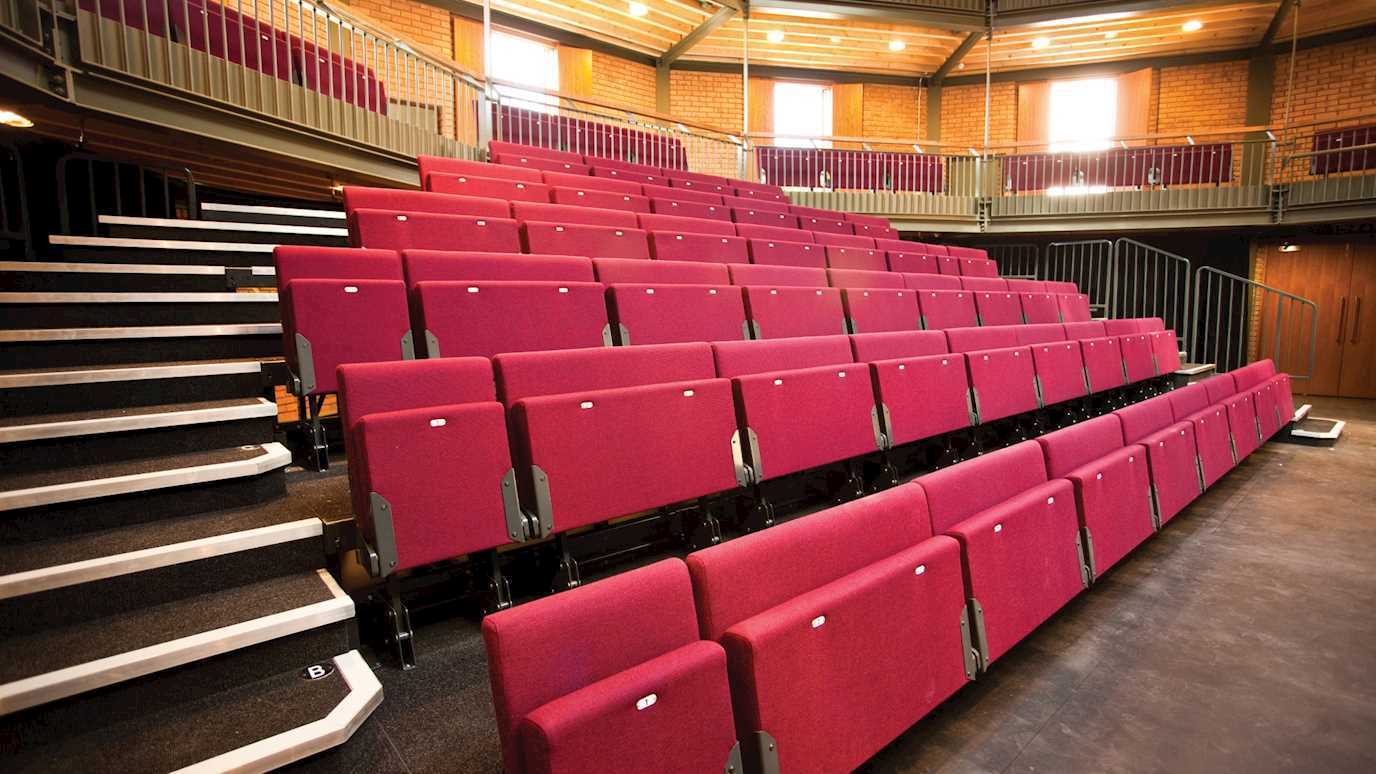We offer supervision in a variety of fields and we welcome diverse projects.
We have a large group of about 70 PhD students in the department at any one time, so you’ll always feel supported as part of the research community.
As a research student, you will be regularly invited to participate in seminars with academic staff. You’ll also present your work at national and international conferences. Many of our students’ presentations have been accepted at large-scale conferences such as Performance Studies International and many more have participated in conferences organised by the Theatre and Performance Research Association (TaPRA).
Ways of working
We offer you rich and varied training opportunities, where you’ll study in discipline-specific workshops and get to know your fellow students.
The university provides training in generic research skills such as academic writing, while the Humanities and Arts Research Institute at Royal Holloway offers a programme of lectures, seminars and reading groups that encourage interdisciplinary collaboration.
Practice-based PhD students attend training about the processes and creative methodologies of practice-based research across the arts, sharing experiences and expertise with PhD students in creative writing, music, media arts and theatre.
We also offer an MA by Research in Drama, Theatre and Dance.
Practice-based research degrees
We welcome applicants who wish to pursue research partially by practice. Current student research topics in practice-based PhD projects include:
- The implications and possibilities of a kinaesthetic approach to devising physical theatre.
- Performing community in Goat Island and Body Weather.
- Site-based strategies in text-based theatre.
Broadly there are two approaches. Firstly, some students write dissertations that are based on, and document, their own practice, submitting a full-length written thesis accompanied by an appropriate portfolio of documentation.
Secondly, a small number of students offer live practice as a core component of their thesis, with practice itself conceived as a central mode of enquiry. This practice is viewed and assessed by the examiners as part of the final submission. In this second model of practice-based research, the written component will be shorter (by approximately one third).
If you wish to be examined in this way, you’ll need to clarify how you’re going to present research findings through your live practice – pronouncing what kinds of insights and knowledge can be explored or conveyed in performance, and cannot be communicated only through discursive writing and other forms of documentation.
Although this undertaking is challenging, a number of exceptional candidates have demonstrated that this is an appropriate and productive route for students who can combine intellectual rigour with disciplined creativity.
Degree details
How long?
- No less than two calendar years of full-time study, or four years of part-time study.
- For programmes of study leading to the award of MPhil, the thesis must be submitted within three years of full-time study or six years of part-time study.
- For programmes of study leading to the award of PhD, the thesis must be submitted within four years of full-time study or eight years of part-time study.
Entry requirements
Applicants who wish to undertake their research should have, or expect to be awarded, a Masters degree in a relevant field, or have the equivalent postgraduate experience.
For information on our postgraduate programmes and relevant application deadlines, please visit the Postgraduate Study page.
Find out more about the application process as well as the associated fees and funding.
When applying, applicants should submit two samples of written work in English, which should take the form of short academic essays or reviews of theatre productions (2,000 words in total). Suitable applicants will be required to attend an interview, either in person or by Skype.
























